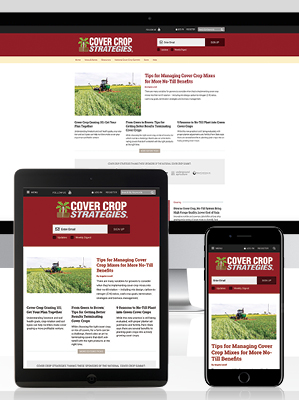Farmers now have a unique option to help bolster their continued push toward sustainability. KWS Cereals announced its new KWS Cover+ soil protection program, a groundbreaking solution for cover crops and sustainable soil management practices that comes at a critical time.
“With rapid growth in the cover crop sector, pressure has been placed on the seed industry to find higher quality seed to meet farmers’ sustainability needs,” said Dr. Becca Brattain, Country Manager from KWS Cereals. “We invested in meeting this challenge and are excited to provide a solution.”
According to a recent American Seed Trade Association survey, an additional 10.5 million acres of cover crops will be planted in the next five years to support conservation practices.
“The launch of KWS Cover+ helps meet that demand,” Brattain noted. “It offers farmers a first-of-its-kind opportunity to use a high-quality common rye seed to help safeguard soil integrity between commercial crop growing seasons.”
She said it’s anything but common, though. The KWS Cover+ is produced from elite hybrid rye genetics ensuring consistency in performance. She explained that the seed is directly produced from KWS Hybrid Rye, which makes it hardy with the potential for fast germination. Farmers get all the traditional benefits rye is known for with the added confidence that their seed comes from a known and trusted genetic source.
- Soil erosion control
- Water retention
- Nutrient preservation
- Weed suppression
- Organic matter enhancement
- Carbon capture
Brattain said it also opens up a new market for farmers growing KWS Hybrid Rye. “In the past, any unused grain had to go to animal feed. Hybrid Rye growers now have a valuable option to market their crop in a soil protection program.”
Farmers can buy KWS Cover+ products from authorized sellers and license partners in the United States and Canada. To find your local source and learn more about the program visit www.kws.com/us/en/products/coverplus/
There are terms and conditions associated with the use of KWS Cover+ that closely mirror those from USDA EQIP. One of the most important rules is that it must be terminated before maturity. The appropriate methods for termination and full information can be accessed on the website.



